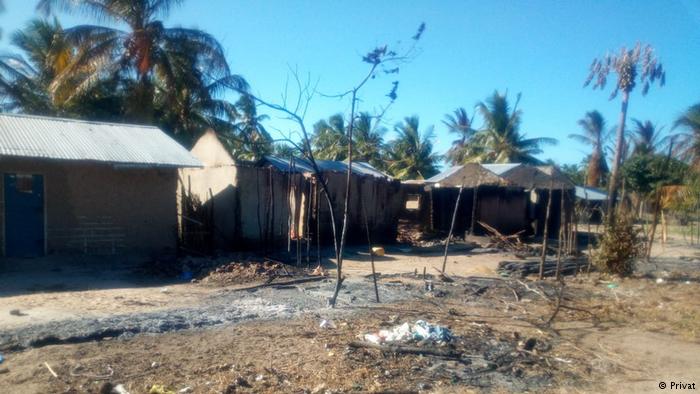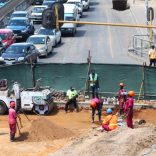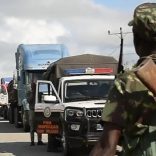Mozambique: 584 inmates who escaped from Maputo prisons have been recaptured - AIM
Attacks in Mozambique are funded by “Islamic radicals”, researcher says

DW / Houses burned in Mucojo district of Mucomia (Cabo Delgado) after am armed attack
Researcher Fernando Jorge Cardoso argues that attacks against civilians in northern Mozambique are financed by “Islamic radicals”, but discounts the scenario of any “endogenous long-term movement creation”.
Fernando Jorge Cardoso, an expert on African studies at the Centre for International Studies of ISCTE-IUL and Coordinator of Strategic Studies at the non-governmental organization Instituto Marquês de Valle Flôr in Portugal, said on Thursday that the attacks against civilians in Cabo Delgado, northern Mozambique, are financed by “Islamic radicals” with the aim of destabilising the region, but discounted the scenario of any “endogenous long-term movement” being created.
“I have no doubt that there is now funding for Islamist radicals across the Middle East who are interested in instability in East Africa and who are increasingly linked along the eastern coast of Africa,” he said.
subtitle – Youth dissatisfaction
“There is some dissatisfaction, particularly on the part of the young population in the coastal zone, who see the prospect of great investments about to be made, but who have not seen, so far, any possibility of improving their standard of living.” But, he pointed out, referring to the attacks in Cabo Delgado in recent months, “this in itself does not lead to the deaths of people and vandalism of civilians’ property”.

c”There is clearly a destabilisation movement that fits this dissatisfaction and is financed from abroad,” he says, but does not believe that there are “conditions in the interior of Mozambique for the creation of an endogenous long-term movement”.
The goal is to draw attention
The attacks, he commented, are worrying, not only their impact on civilians but also for “destabilising an entire area, particularly in the northern coastal zone, near the large gas fields that are about to start operation”.
The aim, he continued, is to “destabilise, generate greater attention and visibility, and give the appearance that this ‘jihadist’ movement has not been annihilated despite all that is happening to the so-called Islamic State and al-Qaeda”.
He pointed out that the attacks are occurring within 100 kilometres of the east coast of Mozambique, in a country with 2,750 kilometres of coastline.

“That doesn’t mean it’s not serious and worrying, and this undoubtedly affects the exploitation of gas, but the large companies that operate there are accustomed to this kind of movement. I do not believe that this type of movement is capable of stopping the development of gas exploration”, he added.
Stability in the country
Cardoso also stressed that these attacks “have nothing to do with the previous conflict – between Frelimo and Renamo, which are still not totally resolved, but are almost”, commenting that both of those parties “do not look at all favourably on what is happening”.
Authorities suspect that the crimes are the responsibility of cells of a group that attacked the police and killed two agents in the village of Mocímboa da Praia in October 2017, and has since invaded and plundered remote villages, provoking the displacement of their populations and causing an undetermined number of deaths.
In the latest wave of violence since May 27, at least 29 people, 11 alleged attackers and two members of the security forces have died, according to figures from the authorities and witness statements.

Restoring stability in the north of the country
The Human Rights Commission of the Mozambican Bar Association (CDHOAM) urged authorities to restore stability in Cabo Delgado, the target of attacks attributed to Islamist-inspired armed groups.
Quoted by the Mozambican Information Agency (AIM), CDHOAM president Ricardo Moresse said yesterday that authorities should act swiftly to stem the blatant violation of human rights in Cabo Delgado.
“The sooner the situation is controlled the better, because there is no doubt that we are dealing with a violation of human rights and we must control this situation as soon as possible,” Moresse said.
The perpetrators of the attacks, he continued, should be held accountable for their actions, with due legal process.
“No matter who the attackers are, the most worrying thing is that they are happening, and the worst thing is that [the perpetrators] remain unidentified,” he added.












Leave a Reply
Be the First to Comment!
You must be logged in to post a comment.
You must be logged in to post a comment.